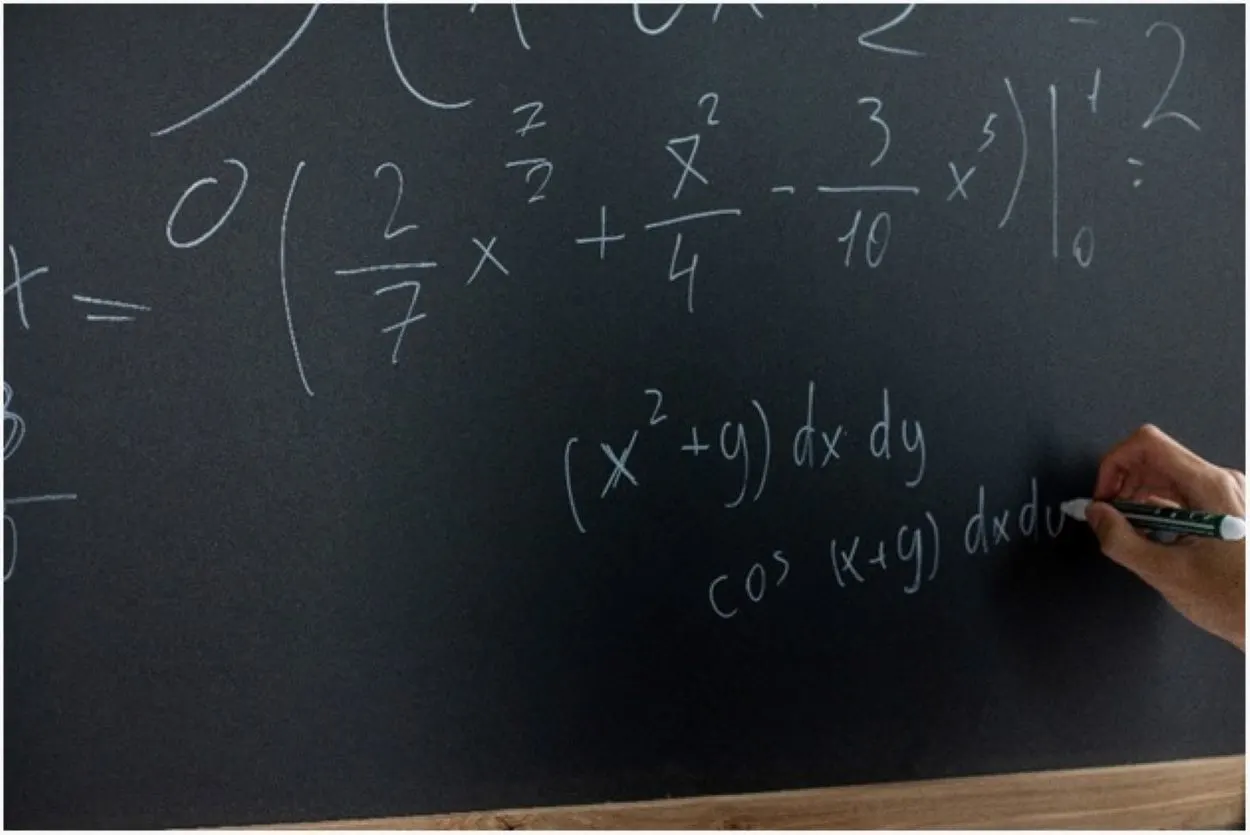Calculations are part of our daily life. We can’t get away from them. To become a master in computations, we study a subject called mathematics. It’s a subject that many people enjoy. Some earn a master’s degree in mathematics, while others have a portion of it in their professional degree.
It’s divided into various branches, including arithmetic, algebra, geometry, etc. The extension of mathematics in which the alphanumeric terms express a mathematical problem or situation is called “Algebra.”All the other branches of mathematics do incorporate algebra. Well, it’s an exciting and challenging part of mathematics.
Algebra is concerned with symbols connected through operators. It’s not just a mathematical idea; it’s a skill we all utilize daily without even being aware of it. It is more necessary to understand algebra as a concept than to solve equations since it applies to all other disciplines of mathematics that you will learn in the future or have already known.
Algebra has further subdivisions, which are essential to advance our knowledge of algebra, so we must first understand those. Following that, we’ll look at the difference between college and intermediate algebra, the article’s primary topic.

Branches of Algebra
There are four branches of algebra depending upon the complexity and use of algebraic expressions.
Pre or Basic Algebra
Denoting the unknown values in mathematics with variables is a fundamental way of creating mathematical expressions that ease problem-solving.
It helps in transforming real-world issues into algebraic expressions in mathematics. The pre-algebra branch helps formulate a mathematical expression for the given problem statement.
Simple Algebra
Simple algebra is also known as elementary algebra. Solving problems represented in algebraic expressions for a plausible answer is a primary focus of elementary algebra. Alphabets like x,y, and z get expansion in the form of equations in simple algebra.
Classifying equations as linear, quadratic, or polynomials depends upon the degree of the variables. The linear equations are first-degree expressions. An example can be Ax+By+Cz = 0.
In elementary algebra, the higher degrees of the variables leads to quadratic equations and polynomials. A polynomial equation is written as Rxn + Sx(n-1)+Tx(n-2)+…..k = 0, while a quadratic equation is written as ax2 + bx + c = 0.
Algebra In Abstract Form
Rather than simple mathematical numbers, abstract algebra employs abstract ideas such as groups, rings, and vectors. The sum and product properties should be written together to form rings, a more manageable abstraction level.
It includes two essential concepts: group theory and ring theory.
Abstract algebra employs vector spaces to express quantities. Abstract-algebra has many applications in computer science, physics, and astronomy.
Algebra In Universal Form
Universal algebra encompasses all other mathematical forms like trigonometry, calculus, and coordinate geometry involving algebraic expressions.
Throughout these topics, universal algebra focuses on mathematical terms rather than algebraic models. Universal algebra is a subset of all other areas of algebra.
Let us now understand the two main high school algebraic courses and exams; one is college algebra, and the other is intermediate algebra.

What Is College Algebra?
College algebra is a higher-level intermediate algebra course that can be a requirement for advanced mathematical disciplines or programs. College algebra covers all the algebraic fundamentals that fit the scope and criteria for an ordinary introductory course of algebra. It satisfies the need for a variety of academic studies.
College Algebra provides a variety of examples with extensive, conceptual explanations, laying a solid foundation for pupils before pushing them to apply what they’ve learned.
The course content of college algebra has all the concepts introduced in high school. It gives a revision of elementary algebra and intermediate algebra. The topics covered in the college algebra course are as follows:
- Building up operations
- Factorization
- Linear & Quadratic Equations
- Exponentials and Radicals
- Polynomials
- Rectangular Coordinates topic
- Logical Expressions
- Ratio & Proportions
- Graphing
Students must pass an entry-level college algebra course before studying more challenging classes like precalculus, trigonometry, calculus, or business math.
What Is Intermediate Algebra?
The development of mathematical thought and reasoning is the focus of this foundational mathematics course.
Intermediate Algebra is an area of mathematics that solves problems by substituting letters for numbers and employing simplification techniques.
It is the next level and comes after elementary algebra. Each of these subjects is typically given one year at the secondary school level, resulting in a two-year algebra series.
Intermediate Algebra is a course about algebraic equations and how to simplify them. Intermediate Algebra, in conjunction with Elementary Algebra, lays a solid basis for higher mathematics courses such as College Algebra, Precalculus, and Calculus.
It is a piece of solid advice to you to analyze the examples and concepts taught in this course and consider any intricacies encountered in any mathematics problems if you want to be proficient in mathematics.
Intermediate Algebra Covers The Following Topics
- Study of real numbers
- Linear and Quadratic Equations
- Inequalities
- Exponents
- Polynomials
- Factorization
- Rational Expressions
- Associated equations
- Radicals
- Quadratic formula
- Complex numbers
- Graphs
The applications of the above topics are also a part of Intermediate Algebra.
Difference Between College And Intermediate Algebra
An excellent mathematical foundation is essential for a better understanding of the courses.
Algebra is a branch of mathematics that is about number theory, analysis, and geometry. It is one of the earliest branches in the history of mathematics.
In algebra, attempting and solving problems is necessary to cultivate a proper mindset. This portion of mathematics analyzes rational expressions. It is essential to understand algebra fully because it builds up specific engineering problems.
College and intermediate algebra are high school courses with their own difficulty levels. They build up certain concepts necessary to understand or refresh algebra to pass through more complex subjects. However, both can create confusion, as many people consider them the same or use them interchangeably.
In the United States, the techniques for solving mathematical problems require a lot of attention. Usually, students think that just writing the answer and not showing the complete solution to the problem will give them good grades, however, it is not the case. When students attempt to do so, they receive poor grades.
The following points will clear the difference between college and intermediate algebra
College Algebra vs. Intermediate Algebra: Basic Concepts
College algebra essentially expands upon the principles and topics which are taught in intermediate algebra, which is a better way of describing the course.
College Algebra vs. Intermediate Algebra: Difficulty Level
Intermediate algebra is a bit more difficult than elementary algebra. Similarly, College algebra is not the same as high school algebra. It is to some extent harder than Intermediate Algebra.
Intermediate algebra is a basic requirement for College algebra. You can’t take this course without studying Intermediate algebra.
College Algebra vs. Intermediate Algebra: Distribution
Intermediate algebra students are dealing with polynomial equations and the like. College Algebra is more about graphs—graphing equations, analyzing graphs and formulas, and determining which is which.
College Algebra vs. Intermediate Algebra: Classification
The first subject in algebra is Algebra I, sometimes known as elementary algebra or beginners algebra. It has generally been a high school course that has been offered as early as seventh grade, but most commonly in eighth or ninth grade. Community colleges also offer the course as a fundamental skill or remedial course.
Algebra I is required for Algebra II, sometimes known as intermediate algebra whereas College algebra is mandatory for students who want to study economics, business, maths, etc.
College Algebra vs. Intermediate Algebra: Spectrum
Intermediate algebra, often known as Algebra II, is an advanced version of elementary algebra that includes much more data. It covers a broad spectrum of mathematical issues whereas College algebra is a transfer algebra course that is the basic requirement for pupils who want to major in subjects like economics, business, maths, physics, or even engineering.
Students will have access to quantitative algebra as a result of this. The level of questions students receive for college algebra is believed to be somewhat difficult, leading many students to seek professional algebra help.

Which Is A More Advanced Course Than Intermediate And College Algebra?
Precalculus is a course that is at an advanced level than college or intermediate algebra. It is a course that includes algebra and trigonometry in a broader group, which is necessary to understand calculus. It acts as a bridge and foundation for higher levels of calculus.
How To Prepare For College And Intermediate Algebra Exams?
When you learn something like a course, you probably do it to pass the exams. To become proficient in an algebra course and easily pass its exam, you need to have a firm grip on the concepts. To qualify for the intermediate or college level, study hard and focus on the basics.
Many schools provide diagnostic tests that you can take before enrolling in a college or intermediate algebra class. Complete these tests to ensure you have the fundamental math skills you’ll need to succeed in this subject. If you aren’t ready, work on everything you need to know and enroll in the algebra class the following semester at your college.
Conclusion
- We are unable to separate ourselves from maths. It occupies a distinct position in our daily life. When it comes to money, calculations are crucial in any industry.
- Mathematics is a general term for a subject as a whole. But it has further divisions, in which algebra is an important one.
- From calculating basic equations to studying abstractions, algebra covers practically everything. Many math chapters involve algebraic equations, which kids will learn in school. Additionally, algebra has several formulae and identities.
- This article discusses the difference between the two types of algebraic courses: intermediate and college algebra.
- College algebra is a better way of defining the subject because it expands on the principles and topics that are taught in intermediate algebra.
- Intermediate algebra is high school maths. Algebra in college is not the same as algebra in high school. It focuses more on graphs.

